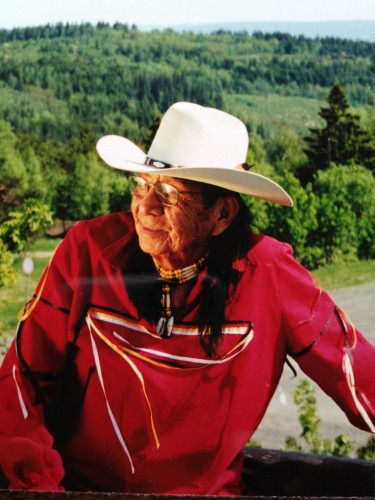Bear Heart’s first job
Encouraging a child to earn their own money does more than teach them responsibility. It gives them the confidence to tackle anything. In this lovely excerpt from “The Wind Is My Mother,” Bear Heart tells the story of his first job: earning money planting cotton.
 My dad taught me to hitch a team of horses to a wagon and a plow when I was eight years old and when I was ten he gave me two acres of land, saying, “If you want to plant something, go ahead. If you don’t plant anything, let it grow wild. Maybe some rabbits will come, feed upon the plant life and you can kill a rabbit to have something to eat. It’s your choice.”
My dad taught me to hitch a team of horses to a wagon and a plow when I was eight years old and when I was ten he gave me two acres of land, saying, “If you want to plant something, go ahead. If you don’t plant anything, let it grow wild. Maybe some rabbits will come, feed upon the plant life and you can kill a rabbit to have something to eat. It’s your choice.”
Don’t let it sit idle, let it yield something — that’s what he was teaching me.
So I planted two acres of cotton — it was good cotton, my very own, but I had to work it and do all the plowing. I knew which plowshare to use if I wanted to plow deeper and I knew how to plow between each row to lessen the weeds from coming up.
I tied the lines to the horses behind my back — when I hit a root or a rock under the ground it would pull me forward and I’d hit the cross bar on the handles of the plow. Often I’d fall but I’d dust myself off and keep going on.
When the cotton grew up, I’d check each boll to see if there were any boll weevils in there and, if there were, we didn’t have any spray, but at least we could pray.
That’s how I’d tend my two acre cotton patch.
I did my best to excel in everything that I tried, but I definitely must say that I was not good at picking cotton. When I picked cotton from each boll, I’d pick it clean and that takes a long time — it’s stuck in there and you have to pull. The sharp, dried points of the cotton boll stick right under your finger nails and the edge of your fingers get all bloody. But at least I had good work shoes.
Some people could pick two rows of cotton at once — one cotton sack on their left side and another cotton sack on their right, ambidextrous, going down the line. It would take me about four times as long to finish one row of cotton, just one sack.
Because I had a lot of cousins living nearby, when it was time to pick the cotton I hired them to pick it for me. I was the boss and we all picked the cotton.
When each cotton sack was full, I would weigh it, record the weight next to the person’s name and dump the cotton in the wagon. When we finished picking I sold the cotton and paid them all off. I think the going rate for cotton at that time was about eight cents a pound.
Afterwards, one of my cousins drove me into town from Okemah to Okmulgee and I paid for the gas — it was just 25 cents a gallon in those days. When we got to Okmulgee, I bought a suede jacket and a new pair of work shoes. Boy, I came out the tallest man in that city because I’d bought something with money I earned with my own labor at ten years old.
Molly Larkin is the co-author of the international best-seller “The Wind Is My Mother; The Life and Teachings of a Native American Shaman” and other books on health. She is passionate about helping people live life to their fullest potential through her classes, healing practice and blog at www.MollyLarkin.com

